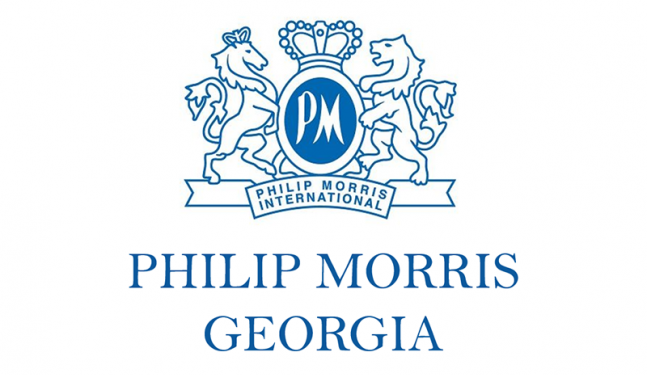For years organizations financed by private donations have put pressure on public policies to fight smoking. Yet today 800 000 adults in Georgia smoke. This number is virtually unchanged for many years. They should quit. But what is the option for those who do not?
On June 24th, 2021, the Institute of Social Researches (ISR) in collaboration with Philip Morris Georgia hosted a conference “Tobacco Harm Reduction – Opportunities or Challenge to Public Health”.
WHO’s Guidelines On the protection of public health policies with respect to tobacco control from commercial and other vested interests of the tobacco industry (art. 5.3 of the FCTC) states:
-“Parties, when dealing with the tobacco industry …should be accountable and transparent” (Principle 2)
– “Parties should require the tobacco industry… to operate and act in a manner that is accountable and transparent” (Principle 3)
-Where interactions with the tobacco industry are necessary, Parties should ensure that such interactions are conducted transparently. Whenever possible, interactions should be conducted in public, for example through public hearings, public notice of interactions, and disclosure of records of such interactions to the public.” (Recommendations 20.2.2)
That is why, in line with these recommendations, ISR has invited the National Center of Disease Control and Public Health of Georgia to attend the Conference, observe, share its views and perspective.
We are disappointed by the manipulations of entities, who tries to hamper the constructive and science-based dialogue on tobacco harm reduction, who profit from the prevalence of smoking in Georgia; who promote the “quit or die” approach; who threaten opponents thinking otherwise; who lie to the public.
It is time to uncover these manipulations. It is time to set record straight. It is time to give honest information to smokers.
Smokers should be encouraged to quit.
Alternatives which do not burn tobacco, like heated tobacco products or electronic cigarettes, are better than continued smoking and they can help to abandon cigarettes.
Increasing number of public health authorities worldwide embrace this concept and encourage smokers who don’t quit, to switch to less harmful alternatives, as they consider it beneficial to public health. You can see some of their statements below:
NHS Inform (Scotland):
“Although nicotine is a very addictive substance it’s relatively harmless. It’s the carbon monoxide, tar and other toxic chemicals in tobacco smoke that will cause serious damage to your health.” https://www.nhsinform.scot/healthy-living/stopping-smoking/reasons-to-stop/tobacco
“If you use e-cigarettes as a complete replacement for smoking, you’ll almost certainly benefit your health.”
https://www.nhsinform.scot/healthy-living/stopping-smoking/how-to-stop/e-cigarettes
National Health Service, UK:
“E-cigarettes do not burn tobacco and do not produce tar or carbon monoxide, two of the most damaging elements in tobacco smoke…
Many thousands of people in the UK have already stopped smoking with the help of an e-cigarette. There’s growing evidence that they can be effective…
While nicotine is the addictive substance in cigarettes, it’s relatively harmless.
Almost all of the harm from smoking comes from the thousands of other chemicals in tobacco smoke, many of which are toxic.”
https://www.nhs.uk/live-well/quit-smoking/using-e-cigarettes-to-stop-smoking/
Health Canada:
“Completely replacing cigarette smoking with vaping will reduce your exposure to harmful chemicals.
Vaping is less harmful than smoking. Many of the toxic and cancer-causing chemicals in tobacco and the tobacco smoke form when tobacco is burned.”
“Vaping products and e-cigarettes deliver nicotine in a less harmful way than smoking cigarettes. These products may reduce health risks for smokers who can’t or don’t want to quit using nicotine.”
https://www.canada.ca/en/health-canada/services/smoking-tobacco/vaping/smokers.html
US FDA:
On 7 July 2020, the U.S. Food and Drug Administration (FDA) issued decisions on Modified Risk Tobacco Product (MRTP) applications for the tobacco heating system submitted by Philip Morris International. In doing so, the agency found that the issuance of the modified risk marketing orders would be “appropriate to promote the public health and is expected to benefit the health of the population as a whole.”
This decision followed a review of the extensive scientific evidence package PMI submitted to the FDA in December 2016 to support its MRTP applications. FDA authorized the marketing of the tobacco heating system with the following information:
“AVAILABLE EVIDENCE TO DATE:
The [brand name omitted] system heats tobacco but does not burn it. This significantly reduces the production of harmful and potentially harmful chemicals. Scientific studies have shown that switching completely from conventional cigarettes to the [brand name omitted] system significantly reduces your body’s exposure to harmful or potentially harmful chemicals.”
It is unfortunate that some anti-tobacco activists and entities completely ignore the above-mentioned data and prefer to cherry-pick negative information or resort to manipulations when it comes to discussion of tobacco harm reduction.
For example, they quote “higher levels of toxic substances in heated tobacco aerosol”. In reality, chemical analysis performed by the independent ISO-accredited laboratory in Canada demonstrated the opposite. Specifically, compared to reference cigarette smoke:
- levels of the following compounds in aerosol of heated tobacco products are reduced:
- nitrosamines – by 94-97%;
- acetaldehyde – by 87%;
- acrolein – by 94%;
- formaldehyde – by 91%.
These results are supported by independent laboratory studies conducted by US FDA Southeast Tobacco Laboratory, Japan National Institute of Public Health, German Federal Institute for Risk Assessment, and other reputable research organizations.
Similarly, readers are misguided by references to the “poisonous compounds of unknown origin… which are not normally detected in tobacco smoke”. In reality, findings presented in the publicly available study indicate:
- There are only 3 compounds unique to heated tobacco product aerosol and not found in reference cigarette smoke;
- None of the 3 compounds presents any toxicological concern.
To quote the US FDA, “Although some chemicals of potential concern (not on FDA’s Harmful and Potentially Harmful Components’ list) may be higher in [brand name omitted] users, the increase in these constituents does not impact the conclusion that the substantial reductions in HPHCs and findings from the toxicological evidence are reasonably likely to translate to lower risk of tobacco‐related morbidity and mortality.” https://www.fda.gov/media/139796/download (page 12)
It is a constitutional right of smokers to have to information about available alternatives.
It is our duty to talk about these alternatives to smokers and regulators.
It is our ambition to help 800 000 Georgians become smoke-free as soon as possible.














